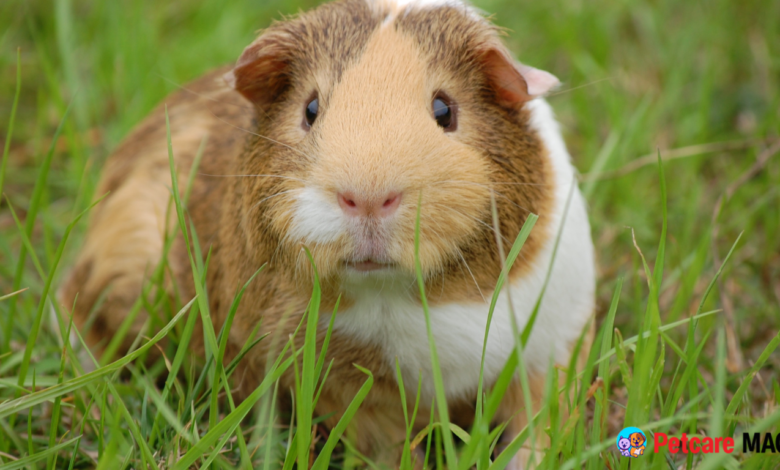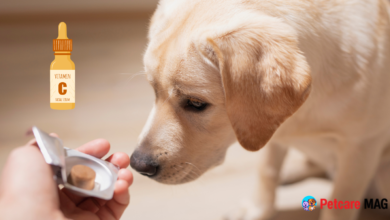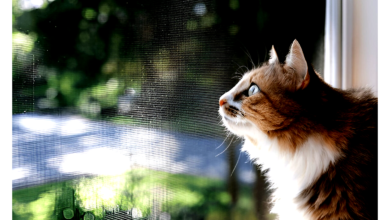

Guinea pigs occasionally referred to as cavies, are normally gentle mammals that are affectionate, simple to care for, and easy to handle. They can make excellent pets. They are one of the largest forms of rodents and are related to both the capybara and the mara. Guinea pigs still exist in their natural wild state in South America.
In this article, we will explore the factors that affect the lifespan of guinea pigs, the average lifespan of guinea pigs, and how you can prolong the life of your furry friend.
Even though they are wonderful companion animals, you should learn as much as you can about the species before you welcome one into your house. Guinea pigs have certain dietary requirements, particular housing prerequisites, and particular health care requirements.
Factors Affecting Guinea Pig Lifespan
There are several factors that can affect the lifespan of guinea pigs. These include genetics, diet, exercise, environment, and medical care.
Genetics
Just like humans, genetics play a role in the lifespan of guinea pigs. Some breeds are predisposed to certain health conditions, which can shorten their lifespan. If you’re adopting a guinea pig, it’s important to know their breed and any potential health issues they may have.
Diet
Diet is another important factor in the lifespan of guinea pigs. A diet that is high in vitamin C, fibre, and protein is essential for their health. Guinea pigs require a diet of hay, vegetables, and pellets to ensure they get all the nutrients they need.
Exercise
Exercise is important for guinea pigs to maintain a healthy weight and prevent health issues. Guinea pigs need plenty of room to run and play, as well as toys to keep them entertained.
Environment
The environment in which a guinea pig lives can also affect its lifespan. They should have a clean, comfortable cage with fresh bedding and plenty of space to move around. The cage should also be located in an area of the house that is free from drafts and extreme temperatures.
Medical Care
Regular veterinary check-ups are important to ensure your guinea pig stays healthy. Guinea pigs are prone to certain health issues, such as dental problems and respiratory issues. Early detection and treatment can help prolong their lifespan.
Average Lifespan of Guinea Pigs
The average lifespan of guinea pigs varies depending on whether they are wild or domesticated.
The Lifespan of Wild Guinea Pigs
Wild guinea pigs typically live for about 3-4 years. They are prey animals and are therefore at risk from predators in the wild. In addition, they may not have access to a consistent source of food or medical care.
The Lifespan of Domestic Guinea Pigs
Domestic guinea pigs generally live longer than their wild counterparts, with an average lifespan of 5-7 years. With proper care, some guinea pigs have been known to live up to 10 years or more.
Comparison of the Two
The lifespan of domestic guinea pigs is longer than that of wild guinea pigs, primarily due to the care and protection provided by their owners. Domestic guinea pigs have access to consistent food and medical care, as well as protection from predators.
Prolonging Guinea Pig Lifespan
There are several things you can do to prolong the lifespan of your guinea pig.
Proper Diet
A diet that is high in vitamin C, fibre, and protein is essential for the health of your guinea pig. Feeding them a variety of fresh vegetables, hay, and pellets will provide them with the nutrients they need.
Exercise and Playtime
Guinea pigs need plenty of room to run and play to maintain a healthy weight and prevent health issues. Providing them with toys and activities will keep them entertained and engaged.
Comfortable Environment
The cage in which your guinea pig lives should be clean and comfortable, with fresh bedding and plenty of space to move around. The cage should be located in an area free from drafts and extreme temperatures.
Read More: Top 10 Best Medications for Dog Anxiety
Regular Veterinary Check-ups
Regular check-ups with a veterinarian can help detect and treat any health issues early on, which can prolong the lifespan of your guinea pig.
Signs of Aging and Illness in Guinea Pigs
As your guinea pig ages, there are several signs to look out for that may indicate health issues.
Decreased Activity
A decrease in activity and energy levels may indicate a health issue.
Changes in Eating Habits
A change in eating habits, such as a decrease in appetite or weight loss, may be a sign of illness.
Changes in Behavior
Changes in behaviour, such as aggression or increased lethargy, may also indicate health issues.
Weight Loss
Unexplained weight loss may be a sign of illness.
Respiratory Issues
Respiratory issues, such as wheezing or difficulty breathing, may indicate a respiratory infection.
Dental Problems
Dental problems, such as overgrown teeth, can cause difficulty eating and lead to other health issues.
How to Extend Your Guinea Pig’s Lifespan
Here are some tips to follow for guinea pig pet parents who want the best for their pets:
- Feed unlimited amounts of high-quality grass hay, like Oxbow, in addition to multiple vegetables and high-quality guinea pig pellets daily
- Offer multiple foods on rotation (using caution to not cause stomach upset)
- Weigh your guinea pig weekly to closely monitor changes
- Take your guinea pig to the vet every 6-12 months
- Once your guinea pig is 3 years old, make sure your veterinarian checks bloodwork every 6-12 months
- Supplement with vitamin C tablets
- Rotate multiple toys to keep your cavy from getting bored
- Guinea pigs are herd animals and shouldn’t be kept alone unless they have extreme health or temperament issues
- Allow frequent exercise, especially supervised time out of their cage at least 1 hour a day, if not more
- Examine your guinea pig daily for signs of illness
- Clean water and food dishes daily, and change all bedding every 3-4 days
- Keep your guinea pig’s home well-ventilated
Conclusion
In conclusion, the average lifespan of guinea pigs varies depending on several factors, including genetics, diet, exercise, environment, and medical care. With proper care and attention, domestic guinea pigs can live for up to 10 years or more. By providing them with a healthy diet, exercise and playtime, a comfortable environment, and regular veterinary check-ups, you can prolong the life of your furry friend and ensure they live a happy and healthy life.







